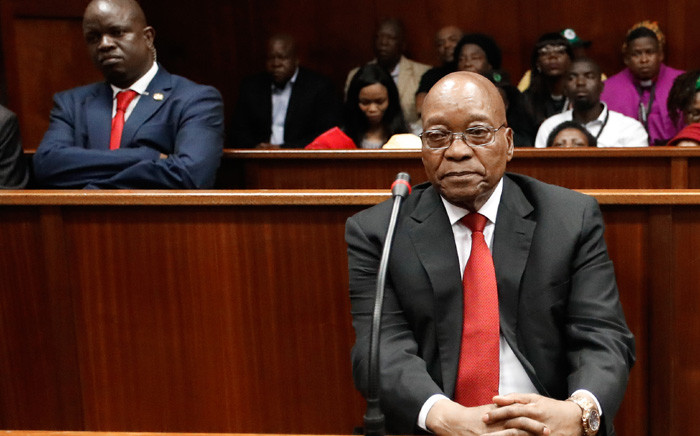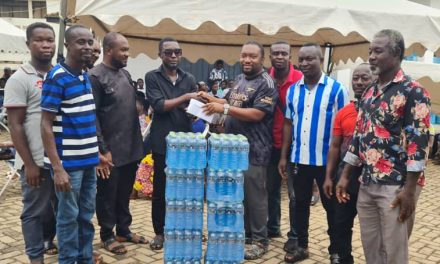
Former President Jacob Zuma Granted ‘Special Remission’3 min read


Former President Jacob Zuma. Photo: South African Government News Agency.
The department of Correctional Services has confirmed that former President Jacob Zuma reported to the Estcourt Correctional Centre on Friday morning and has since been released after being granted a “special remission”.
The National Commissioner, Makgothi Samuel Thobakgale, revealed his decision this morning during a joint media briefing with Justice and Correctional Services Minister Ronald Lamola.
“As the National Commissioner of the Department of Correctional Services, I have exercised my discretion as per the SCA [Supreme Court of Appeal] judgement, in deciding whether or not to take into account the period served under Community Corrections by the former President, Mr Jacob Zuma.”
This comes after the SCA found that the National Commissioner’s decision to place the former Statesman on medical parole was unlawful and unconstitutional and that he had to complete his sentence.
The Constitutional Court sentenced Zuma to 15 months imprisonment in July 2021 and only served two months after he ignored a court order to testify at a State Capture inquiry looking into a web of corruption during his Presidency.
“In compliance with the SCA judgement, Mr Zuma did report back at Estcourt Correctional Centre this morning. A consideration has been made as per legislation, including processes that were already unfolding in the management of correctional services,” said Thobakgale.
“The administrative procedures have ensued and Mr Zuma has been processed accordingly.”
Thobakgale told the media that although both the SCA and the High Court considered the Commissioner’s decision as unlawful, Zuma was not discharged, but placed under community corrections where he continued serving his sentence, under strict conditions.
“Parole in South Africa is a form of punishment which is served by an inmate within the system of community corrections in terms of Chapter VI of the Correctional Services Act of 1998,” he explained.
“When Mr Zuma left a medical hospital upon placement on medical parole, he was continuously under community corrections serving his sentence. He was never a free man with effect from 8 July 2021.”
Meanwhile, Lamola announced that President Cyril Ramaphosa has approved the remission of non-violent offenders in South Africa.
“Obviously, a question will arise whether former President Jacob Zuma will benefit from this decision or not. Indeed, he’s one of the beneficiaries as a low-risk offender.”
According to the Minister, there are 212 286 inmates, including 9 351 foreign nationals, across the country’s 243 correctional centres and 218 community centres.
“Unfortunately, the current occupancy rate is 143%, with the overcrowding rate at 43.06%.
“The recent loss of 3 024 beds at Kutama Sinthumule due to fire means that overcrowding will increase by 4%, raising the overcrowding rate to 47.06% and in turn the occupancy rate will increase 147%.”
Lamola told the media this poses a direct threat to inmate health, security, and management, and it could lead to a surge in gangsterism.
“More importantly, it hampers the department’s ability to provide development and rehabilitation programmes.”
The Minister has described the remission of sentences as a crucial aspect of the country’s justice system.
“However, it’s important to note that certain offenders, such as those convicted of sexual offences, tampering with essential infrastructure, serving life sentences, and being declared dangerous criminals, are excluded from this criterion of this special remission.”
Despite this, he said low-risk offenders in these categories may still be eligible for a 12-month remission.
Meanwhile, those convicted of non-violent and nonsexual crimes will be eligible for up to 24 months of remission after completing the pre-release programme and risk assessment.
He said the decision will result in the deportation of 3 064 foreign nationals serving short-term sentences under the guidance of the Department of Home Affairs.
Additionally, he emphasised that it will alleviate overcrowding by releasing approximately 9 488 prisoners and a further 15 000 inmates who are currently under correctional supervision and parole.
“The exercise of exploring special remission commenced on 24 April 2023 when we lost approximately 1 112 bed spaces due to dilapidation in most of our centres.” – SAnews.gov.za



















